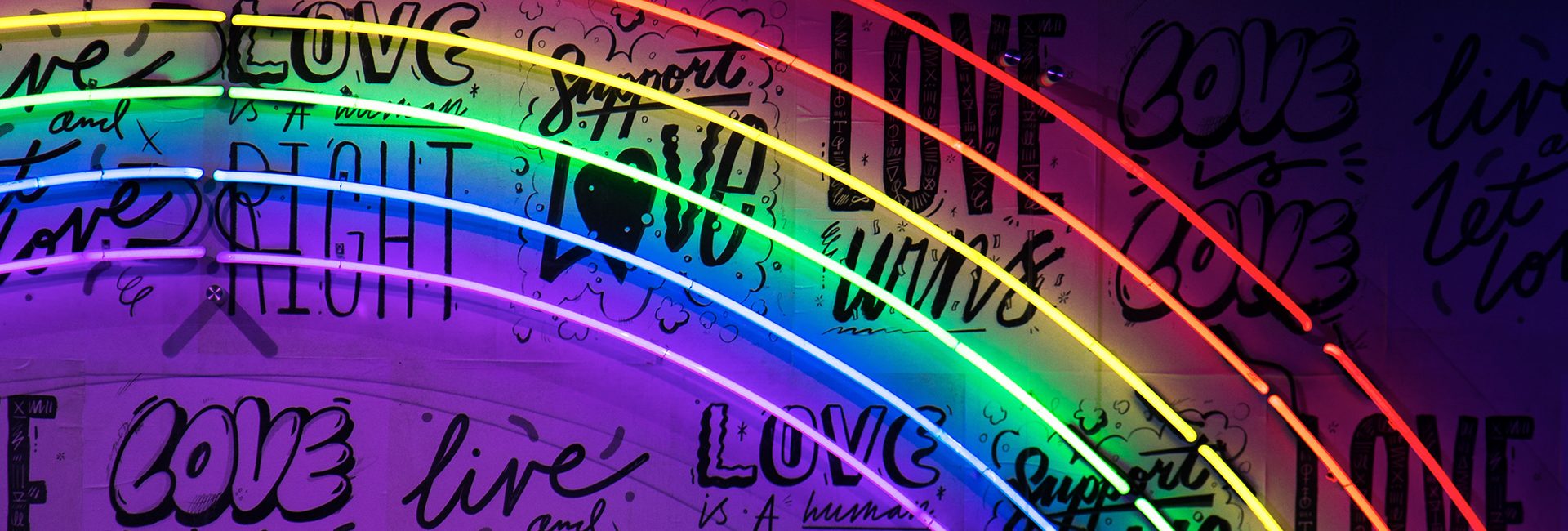As an equal opportunity employer, we believe in providing a safe, autonomous, equitable, and inclusive workplace for everyone. We are strong proponents of personal choice, bodily autonomy, equality, and fairness. With 10% of our workforce identifying as LGBTQ+, we stand with and actively support the LGBTQ+ community.
To create an environment where everyone can thrive, it’s important to understand daily issues and barriers facing LGBTQ+ people. The LGBTQ+ community in general faces discrimination. But recently, trans people in particular have faced even more extreme attacks, including daily harm that often ends in violence.
Here are some of the barriers LGBTQ+ people face – and how allies need to step up.
HOW EVERYDAY LGBTQ+ LIVES ARE IMPACTED BY ROUTINE DISCRIMINATION
Poverty
Overall, more than one in five LGBTQ+ adults (22%) are living in poverty, compared to an estimated 16% of their straight and cisgender counterparts. Trans people live in poverty at much rates, especially trans people of color. While 29% of all trans adults live in poverty, that number rises to 39% for Black trans adults, 48% for Latinx trans adults, and 35% for Alaska Native, Asian, Native Americans, and Native Hawaiian or Pacific Islander trans adults. And 40% of youth who experience homelessness are LGBTQ+.
Voting discrimination
LGBTQ+ people are more likely to be dropped from voter rolls. They’re also intimidated or denied the right to vote due to sexual or gender identity. And they have difficulty obtaining or displaying approved voter IDs. These barriers are particularly pronounced for trans adults and BIPOC LGBTQ+ adults.
Access to healthcare
An HRC Foundation analysis found that 22% of trans people and 32% of trans people of color have no health insurance coverage. More than a quarter (29%) of trans adults have been refused healthcare by a doctor or provider because of their gender identity.
Legal barriers
Trans and non-binary people who wish to update their legal documents to better match their identities often can’t. They face restrictive and unnecessary legal requirements, long wait times, expensive financial requirements, and laws that prevent them from changing their identification entirely. Many government identity documents also lack inclusive gender options.
Mental health and personal safety
According to the Human Rights Campaign (HRC), 28% of trans adults say they have sustained periods of time in which they are unable to do routine activities – such as self-care, work, or recreation – due to poor mental or physical health.
And beyond everyday discrimination and denial of equal opportunity, ongoing anti-trans stigma results in increased risk factors related to a culture of violence. The abhorrent epidemic of fatal violence against trans and non-binary people particularly impacts Black trans women. Since 2013, there have been over 250 cases of known fatal violence against trans and gender-non-conforming people in the US. That number is likely higher, though, since many crimes go unreported or are misreported. (And since trans people are frequently the target of police violence.)
Systemic limitations to freedom and equality
More recently, there are increasing attempts to restrict equality through legislation. According to the HRC, “Last year, a record 26 anti-LGBTQ+ bills went into effect across ten states. In 2022, at least 320 anti-LGBTQ+ bills are already pending in state legislatures.” These laws would affect access to medical care, including counseling for trans people, parental rights, social and family services, student sports, or access to public facilities such as restrooms. These laws seek to put the authority of state government behind discrimination. And they send the message that trans people are not worthy of equal protection under the law or recognition as full members of our society.
Ultimately, these measures are part of a much bigger trend toward limiting freedom and equality. The extreme views and legislation that limits the rights and liberties of LGBTQ+ citizens follow the same course as other potentially restrictive legislation: reversing Roe v Wade and limiting bodily autonomy and access to reproductive healthcare. These restrictions threaten the health, independence, and economic stability of our people, communities, and businesses. They restrict basic human rights, impact our ability to recruit and retain a diverse workforce, and lead to an unjust, inequitable future.
HOW TO BE AN LGBTQ+ ALLY
With all the barriers (and outright violence) the community is facing, what does supporting LGBTQ+ individuals look like?
Educate yourself and others.
The most basic thing we can do is educate ourselves. It’s key to people choosing understanding over judgment and control. When people don’t understand an issue, it’s easier to dehumanize others, perpetuating the cycle of discrimination. A good starting point is HRC’s Glossary of Terms.
Talking to family and others in your community about LGBTQ+ rights is also crucial. And so is pushing back against homophobic or transphobic comments and behaviors.
Normalize personal pronouns.
This helps to normalize discussions around gender identity and creates safe spaces for trans and non-binary folks. At Wordbank, we have our pronouns in our email signatures, and we ask for them as part of our new Wordbanker setup. On our new hire form, we include multiple pronoun options for people to choose or they can write their own.
Advocate for critical non-discrimination protections.
Support the Equality Act and other policies that make our country more inclusive and fair for all. We’ve been advocating for trans coverage with our PEO healthcare company. Our insurance plans cover domestic partners, and we support inclusive paid leave.
Engage in and share media that promotes LGBTQ+ inclusion and positivity.
As part of our Pride celebrations this year, during the month of June, we’re sharing a variety of media with LGBTQ+ focus: movies, series, documentaries, books, video games, songs, etc. We’ve asked all Wordbankers to share their favorites to create a library everyone can access. We’re also sharing this LGBTQ+ Elder Health Care Guide since this community in particular faces some additional challenges.
Host or attend Pride celebrations and support the LGBTQ+ community and events.
Last year, Wordbank hosted a mental-health-focused Pride event. This year we’re holding a brunch with discussion of LGBTQ+ issues. And several Wordbankers are participating in The Trevor Project 51 Mile Pride Ride Challenge. Those who participate commemorate the 51st anniversary of the first-ever Pride Month and raise funds to support their mission to end suicide among young LGBTQ+ people.
Give direct financial or material support.
Sometimes, being an ally is just about giving money or other material support to people who need it directly. Social media is full of requests for help to cover gender-affirming care, or even just rent, food, and utilities for LGBTQ+ folks. You can also look for needs in your immediate community and do what you can to meet them.
Center LGBTQ+ voices and priorities.
It’s important to speak up — but it’s just as important not to talk over LGBTQ+ voices, especially those of BIPOC and disabled people in the community. Acknowledge privelege, listen to what folks need, and make sure that your words and actions center them, not you.
FINAL THOUGHT
As a people-first organization and a certified B Corp, we advocate for and celebrate human value, diversity, and inclusion as the fabric of connection and creativity. And as allies (and members) of the LGBTQ+ community, we will continue to stand up for equal rights and show our Pride, not just in June, but throughout the year. Besides being the right thing to do, inclusive business practices lead to happier, more productive, engaged staff and increased customer satisfaction. Love, appreciation, and understanding is the only way forward in building a just and equitable world for future generations.






